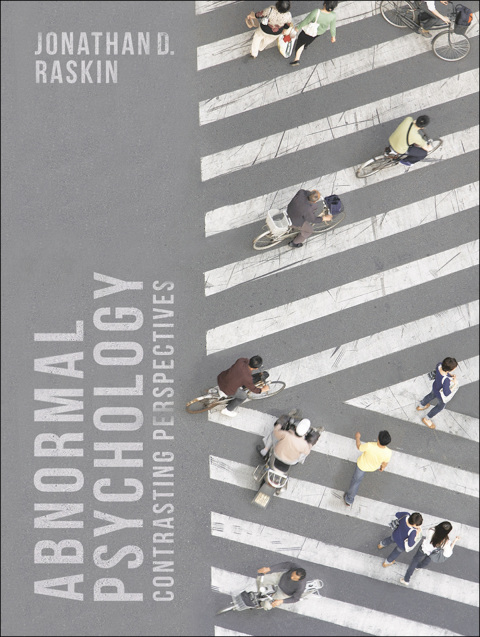Description
Efnisyfirlit
- Title Page
- Copyright
- Contents
- Preface
- About the Editors
- Contributors
- Chapter 1 Policy Practice
- Introduction
- Policy Practice
- Preparation of the Practitioner
- Assembling a Team
- Identification, Definition, and Legitimization of the Problem
- Selecting an Approach
- Conducting an Analysis
- Information About the History and Current Status of the Problem and Policy
- Identification of the Norms and Values of the Voting Public
- Recognition of the Political Alliances That Will Support or Oppose the Proposal
- Review of the Current System of Agencies That Compose the Service Delivery System
- Generation of an Alternative Solution or Alternative Solutions
- Collection or Production of Appropriate Professional Analyses
- Examination of Potential Unintended Consequences
- Selection of an Alternative or Alternatives
- Action Planning
- Evaluating the Outcomes
- Conclusion
- Key Terms
- Review Questions for Critical Thinking
- Online Resources
- References
- Chapter 2 Social Welfare Policy and Politics
- Introduction
- Defining Social Welfare Policy
- Defining Politics
- Politics as Process
- Politics as Ideologies: Across the Spectrum of Right and Left
- Libertarians (Neoconservatism)
- Conservatism
- Centrism
- Liberalism
- Social Democracy and Labor Parties
- Socialism
- Politics as Process: How to Have an Effect on Social Policy
- Getting Involved
- Understanding the Issue
- Planning Advocacy
- Advocating
- Evaluating Advocacy
- Ongoing Monitoring
- Conclusion
- Key Terms
- Review Questions for Critical Thinking
- Online Resources
- References
- Chapter 3 New Federalism, New Freedom, and States’ Rights: The Uncertain and Fragmented Direction of
- Introduction
- The Epidemiology and Burden of Mental Illness
- Unresolved Federalism in Mental Health Policy
- States’ Rights and Control of Mental Health Policy
- Federal Encroachment in State Mental Health Policy and Services
- National Mental Health Acts/Public Laws
- Increases in Federal Financing
- Presidential Commissions and Involvement in Mental Health Policy in the United States
- Federal Lawsuits and Judicial Cases Against the States
- The Declining Financial Health of State Governments: Implications for the Future of State Mental Hea
- Key Terms
- Review Questions for Critical Thinking
- Online Resources
- References
- Chapter 4 Aging in the United States: Challenges to Social Policy and Policy Practice
- Introduction
- The Political/Moral Economy Context of Aging Societies
- Changing Social Perceptions, Expectations, and Policies
- Medicalization of Aging
- Older Adults, Status, Roles, and Resources
- Changing Perceptions of Older Adults and Social Welfare
- Ageism and Age Discrimination
- Recognition of Diversity in the Aging Population
- Potential Role of Technology
- Overview of Selected Policy and Services
- Income Issues in Late Life and Related Policies
- Employment Issues
- Health Policy Issues
- Housing Policy Issues
- Transportation Issues
- Common Policy Directions
- Title XX Services
- Characteristics of the Health and Social Service Delivery Systems
- Implications for Social Work Policy Practitioners
- Key Directions for a Policy Practice Agenda
- Key Terms
- Review Questions for Critical Thinking
- Online Resources
- References
- Chapter 5 Explanatory Legitimacy and Disjuncture: A Multidimensional Model for Disability Policy Dev
- Introduction
- Explanatory Legitimacy Theory
- Description
- Explanation
- Legitimacy
- Looking Back
- Explanatory Legitimacy Theory Analysis of Policy Exemplars
- Social Security Disability Insurance (SSDI)
- Conclusions
- Key Terms
- Review Questions for Critical Thinking
- Online Resources
- References
- Chapter 6 Health Care Policy: Should Change Be Small or Large?
- Introduction
- Needed Background
- The Uninsured/Underinsured
- Health Disparities
- Policy Topics
- Radiation Exposure Compensation Act
- Medicare Part D
- Patient Self-Determination Act and the Medicare Hospice Benefit
- Oregon’s Death with Dignity Act
- Women’s Reproductive Health
- End-Stage Renal Disease Program (ESRD)
- Policies/Programs Worth Exploring
- Concluding Remarks and Future Directions
- Key Terms
- Review Questions for Critical Thinking
- Online Resources
- References
- Chapter 7 Social Determinants of Health: 21st-Century Social Work Priorities
- Introduction
- Social Work at the End of the 19th Century
- Social Work in the 20th Century
- Hypothesis 1. The Profession of Social Work Will Continue to Emphasize Methodological Individualism
- Hypothesis 2. Social Work Will Align Itself With Public Health Efforts, Particularly in a Global Con
- Hypothesis 3. A Social Development Specialty Track Will Emerge and Link Social Policies, Programs, a
- Hypothesis 4. Social Determinants of Health Across the Life Span Will Unite the Profession’s Knowl
- Conclusions
- Key Terms
- Review Questions for Critical Thinking
- Online Resources
- References
- Chapter 8 Property for People or the Property of People: Urban Housing Policy and Practice in the De
- Introduction
- An Urban World-Why Fresh Thinking on Urban Housing Practice and Policy in Less Developed Regions Mat
- Planet of Slums-Why Poor Urban Housing Conditions Is Not All That Matters
- The Good and the Great-International Development Organizations, Alliances, and Campaigns
- The UN-Habitat Campaigns on Good Governance and Tenure
- Secure Title or an Entitlement to Security
- Civil Society, Not-for-Profits, and Others of the Same Ilk, But With a Different Perspective
- Project by Project Interventions
- Community-Based Housing Finance
- Contemporary Activities—Federations of the Poor and Alliances
- Partnerships—Maintaining the Status Quo or Challenging the State?
- Transnational Alliances and Exchanges
- Property for People or the Property of People: The Politics of Tenure
- Toward a Conclusion: The Challenge for Urban Housing Policy and Practice Lies in Asking the Right Qu
- The Poverty of Resources or the Resources of Poverty? Labor Markets, Urban Poverty, and Housing
- Means or Ends: Short- Versus Long-Term Housing Outcomes
- Benefits for Some or for All? National and International Goals
- In Conclusion: Property for People or the Property of People
- Key Terms
- Review Questions for Critical Thinking
- Notes
- Online Resources
- References
- Chapter 9 Child Welfare Policy
- A Brief History of Child Welfare Policy in the United States
- The Initial Involvement of the Federal Government
- The Impact of the Child Abuse Prevention and Treatment Act of 1974
- Foster Care Drift and the Adoption Assistance and Child Welfare Act of 1980
- The Adoption Assistance and Child Welfare Act of 1980
- The Impact of the Adoption Assistance and Child Welfare Act of 1980
- The Indian Child Welfare Act of 1978
- Applicable Supreme Court Rulings
- Family Preservation and Family Support Act
- The Multiethnic Placement Act of 1994 and the Interethnic Adoption Provisions of the Small Business
- Reassessment of the Adoption Assistance and Child Welfare Act of 1980 and the Adoption and Safe Fami
- Foster Care Independence Act of 1999
- Conclusion
- Future Policy Issues
- Key Terms
- Review Questions for Critical Thinking
- Online Resources
- Notes
- References
- Chapter 10 Public Funding of Sectarian Organizations for the Provision of HIV/AIDS Prevention and Ca
- Introduction
- Religious and Faith-Based Organizations Providing Social Services: Charitable Choice
- Religiosity as a Predictor of Homophobia
- Practices That Could Lead to Discrimination and Limited Treatment Strategy Related to Substandard Ca
- Negative and Discriminatory Aspects of Abstinence-Only Prevention Programs to Gay Men
- Implications of Access to Care and Aversion to Sectarian Providers Among Gay Men
- Implications for Further Research and Policy Development
- Key Terms
- Review Questions for Critical Thinking
- Online Resources
- References
- Chapter 11 Social Welfare and Economics: Redefining the Welfare State in a Global Economy
- Introduction
- The Social Welfare State: A Legacy of the Industrial Era
- The Postindustrial Economy
- Employment in Postindustrial Society
- Impoverishment and Debt in the Postindustrial Era
- A New Welfare Agenda for the Global Economy
- A Welfare Agenda for the Changing Demographics of U.S. Families
- Everyone Should Pay a Fair Share
- The Need for New Labor Policies
- Health Care Reform
- Upgrading the Minimum Wage
- Portable Benefits Packages
- Conclusion
- Key Terms
- Review Questions for Critical Thinking
- Online Resources
- References
- Author Index
- Subject Index






Reviews
There are no reviews yet.